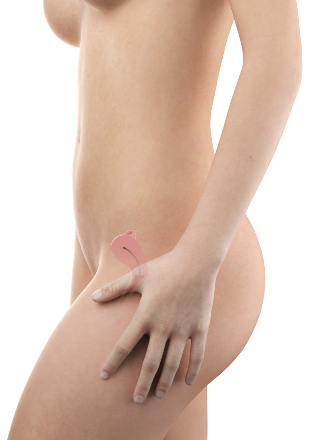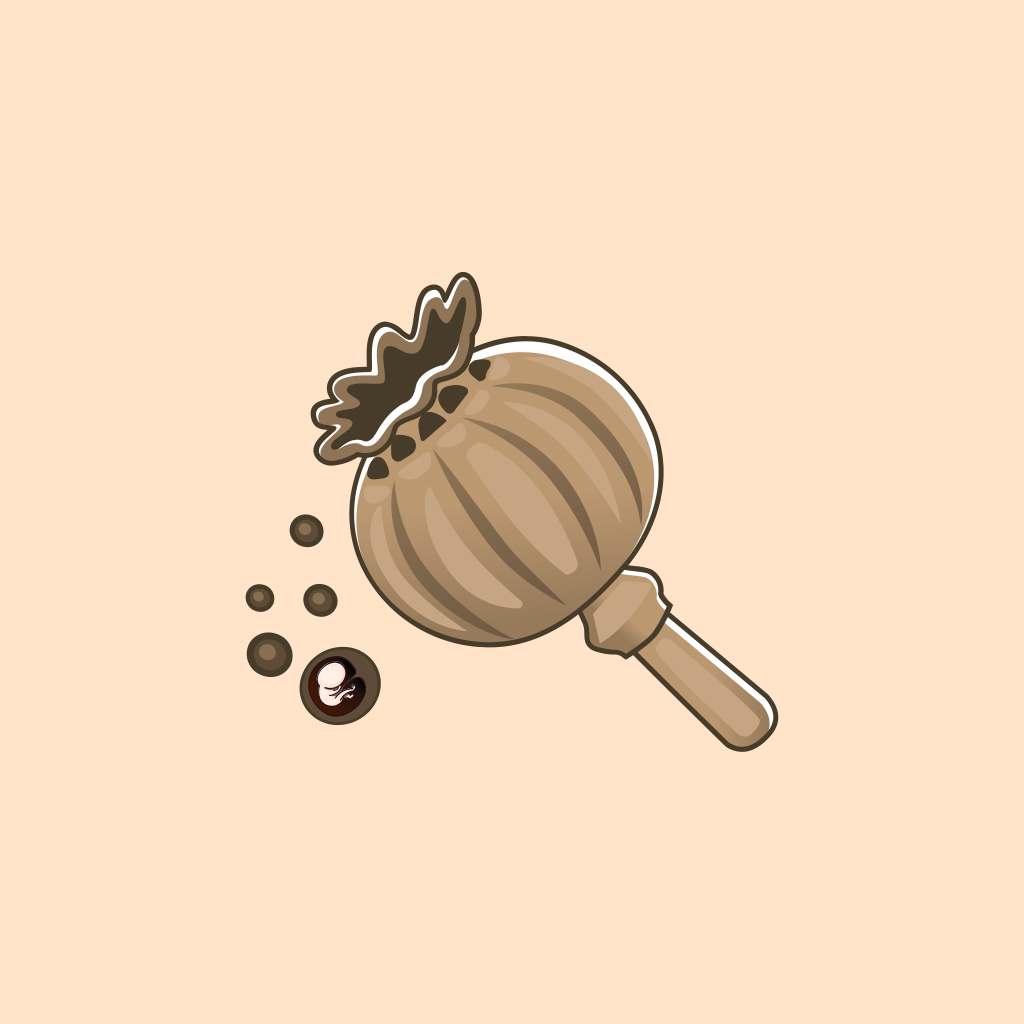Welcome to the very start of your pregnancy journey! Even though it might feel early—possibly before you even know you’re expecting—Week 1 is the first chapter of the amazing months ahead. It’s normal to have questions or feel a mix of emotions. Remember, every mom’s experience is unique, and each step you take is special and important.
Strangely enough, during Week 1, you’re not technically pregnant yet. Most doctors count pregnancy from the first day of your last period, making this week part of your body’s natural monthly cycle. Your body is quietly preparing the perfect place for a baby, shedding the uterine lining from last month and beginning to build a new one. Then, your body is ready for fertilization a couple of weeks from now.

This is a wonderful time to pay extra attention to your health and habits. If you’re hoping to conceive, small choices now can help set the stage for a healthy pregnancy. Focus on:
- Eating well: Fill your plate with fruits, veggies, whole grains, lean proteins, and dairy. Prenatal vitamins with folic acid are a great way to support your baby right from the start.
- Resting enough: A regular sleep schedule helps your body prepare for the changes ahead.
- Staying active: Gentle exercises like walking, yoga, or light stretching can boost your mood and strengthen your body.
- Avoiding unhealthy habits: Try to stop smoking, avoid alcohol, and reduce caffeine where possible.
- Reviewing medications: Check with your doctor if you’re on any medicines, so you know what’s safe for pregnancy.
This week, you might notice your usual menstrual symptoms—like cramps, fatigue, or mood shifts. These are normal and simply part of your body’s preparation process.
Even though the journey is just starting, be gentle with yourself. It’s okay to have questions or feel uncertain. Every mother—whether this is your first time or you’ve done this before—deserves support and understanding. As each week unfolds, we’ll be right here to guide you, offer encouragement, help celebrate each milestone along the way.
Your Baby’s Development This Week
Week 1 of pregnancy is a little different than you might expect. Even though you’re just starting this exciting journey, there isn’t actually a baby growing yet. The countdown to your due date begins from the first day of your last menstrual period (LMP). This means that by the time a pregnancy is officially “one week” along, your body is just finishing your period and starting to prepare for the possibility of a new life.
Right now, the main event is happening inside your body as it gets ready for ovulation, which usually comes about two weeks later. While there’s no embryo or baby just yet, this week is an important part of the bigger process, laying the groundwork for a healthy pregnancy in the weeks to come.
Here’s what makes this week special—and how you can start nurturing yourself and your future baby, even before conception:
- Your body is getting ready for a new cycle: During your period, the previous month’s uterine lining is shed. Over the next several days, your reproductive system starts to build a new uterine (endometrial) lining where a fertilized egg could one day implant. Think of it as preparing the foundation of a home for a future baby.
- No baby yet, but lots of behind-the-scenes action: While an ultrasound wouldn’t show any sign of pregnancy yet, hormones like estrogen and follicle-stimulating hormone (FSH) are busily at work. These hormones encourage your ovaries to mature eggs, one of which will be released during ovulation.
- No pregnancy symptoms at this stage: Many women notice cramping, fatigue, or mood swings during their period, but these aren’t related to pregnancy yet. You may feel bloated or tired, and that’s perfectly normal for this week.
- An important time for self-care: Even before conception, what you do now matters. If you’re trying for a baby, starting a daily prenatal vitamin with folic acid is a wonderful choice. Folic acid reduces the risk of neural tube birth defects, so it’s important to have it in your system ahead of getting pregnant.
Beyond vitamins, this is a gentle reminder to focus on healthy habits. Eating a colorful and nutritious diet packed with greens, fruits, and proteins helps your body get ready for pregnancy. Try to steer clear of smoking, alcohol, and any non-essential medications—these early steps can make a big difference if you become pregnant in the next few weeks.
If you have a checkup scheduled or are meeting your women’s health provider for preconception advice, this is a great opportunity to ask questions about your health, discuss your regular medications, or talk about any concerns you might have. Your care team is there to support you long before a positive test.
Although you’re not “technically” pregnant through Week 1, it’s still a vital week for setting the stage for a future baby. You’re already doing your part simply by learning, preparing, and taking care of yourself. Remember, every journey begins with a first step—and you’re well on your way.
Changes in the Mother’s Body
Week 1 of pregnancy can be a little confusing, especially for first-time moms. At this point, your journey is just getting started—even though you’re not technically pregnant yet! Most doctors begin counting pregnancy from the very first day of your last menstrual period (often called “LMP”). That’s why the changes you notice in your body this week are really the same ones you experience during your usual menstrual cycle.
Right now, your body is doing the important work of preparing for a potential pregnancy, even though you may not feel anything out of the ordinary. Here are some of the normal changes you might notice:
- Menstrual symptoms: You might have cramping in your pelvis, aching in your back, or feel more tired than usual. Some women also notice headaches or gastrointestinal symptoms as diarrhea or bloating. These are all signs that your body is shedding the previous uterine lining, which happens every month.
- Energy levels: It’s very common to feel extra tired, less motivated, or even a bit moody. This happens because your hormones—like estrogen and progesterone—are moving up and down as your body prepares for ovulation in the weeks ahead.
- Breast changes: Some women notice their breasts are sensitive or a little swollen right before or during their period. This can happen now, too, and is normal.
- Emotional ups and downs: Hormones can influence your feelings, bringing emotional highs and lows. If you’re feeling a bit more sensitive or irritable, know that this is very common.
- Digestive changes: You might experience changes in your appetite or digestion, like a slight decrease in hunger or more frequent trips to the bathroom.
Even if it seems like nothing special is happening, your body’s hormone levels are starting to shift. This sets a healthy foundation for ovulation (when your body releases an egg), which usually happens about two weeks after your period begins. These early days are a hidden, but vital part of preparing for a possible pregnancy.
This is also a good moment to focus on your well-being. Try to get plenty of rest whenever you can, eat nourishing meals, and be gentle with yourself if you’re feeling emotional. Staying hydrated and doing light exercise like walking or gentle stretching can help ease discomfort and boost your mood.
If you’re hoping to conceive soon, now might be the time to think about your health habits. Many women find comfort in reviewing their lifestyle, such as looking at stress levels, sleep routines, and ways to relax. While you don’t need to make drastic changes overnight, small steps—like planning healthy snacks or making time for self-care—can make a difference as you move forward.
Remember, there’s no “right” way to feel during this time. Every woman experiences her cycle a little differently. If you’re unsure about any symptoms or just want reassurance, don’t hesitate to reach out to a caring healthcare provider. You’re already taking amazing steps for your health, and that’s something to be proud of!
What Medical Visits or Health Checks Do You Need in Week 1?
At this very beginning stage—what providers call Week 1 of pregnancy—you’re not actually pregnant yet. This week marks the start of your menstrual cycle, before ovulation and before any fertilized egg is present. Even though a baby hasn’t started developing, it’s a perfect time to start thinking about your health if you’re hoping to become pregnant soon.
Here’s what you might consider for medical care right now:
- Think About a “Preconception Checkup”: If you’re planning to start a family, scheduling a regular visit with your women’s healthcare provider is a great first step. This appointment is sometimes called a preconception visit. Your provider can help you review your overall health and get ready for pregnancy.
- Review Medications and Supplements: Talk through any prescriptions or over-the-counter medications you take, as well as vitamins or herbal supplements. Some can affect your chances of getting pregnant, or aren’t safe in early pregnancy.
- Discuss Existing Medical Conditions: Conditions like diabetes, thyroid problems, or high blood pressure can affect pregnancy. Your provider can help you make improvements to make sure these are well-managed before you conceive.
- Talk About Vaccines: Ask about staying up-to-date on vaccines, such as the flu shot or rubella, to help protect both you and your future baby.
- Review Your Lifestyle: Your provider might ask about your diet, exercise, and whether you smoke or drink alcohol or use drugs. This is a good time to discuss healthy changes you might want to start now—like limiting caffeine or cutting out tobacco.
Don’t worry if you haven’t met with your provider yet—many women schedule their first real prenatal visit after they miss a period, often around weeks 6 to 8. But checking in earlier can be very helpful, especially for your peace of mind and for catching any issues before pregnancy begins.
Most importantly, use this time to ask questions and talk about any concerns. Every woman’s journey toward pregnancy is a little different, and your doctor is there to support you every step of the way.
Nutritional Tips and Physical Exercise
Even though you’re not technically pregnant yet in Week 1, caring for your body now sets the stage for a healthy pregnancy journey ahead. Whether you’re planning or just starting to think about growing your family, small choices can make a big difference down the road. Let’s look at how simple nutrition and gentle activity can support you in these early days.
- Fill Your Plate with Color: Try to eat a variety of fruits and vegetables in all the colors of the rainbow. Spinach, carrots, berries, oranges, and bell peppers are full of vitamins and help your body get the nutrients it needs to prepare for pregnancy.
- Choose Healthy Proteins: Lean meats like chicken or turkey, eggs, beans, lentils, and tofu are great options. These help your body build and repair tissue, which becomes even more important as your body prepares for potential changes.
- Whole Grains Matter: Swap white bread, rice, and pasta for whole grain versions. Oats, brown rice, quinoa, and whole wheat bread provide sustained energy and keep your digestive system happy.
- Strengthen with Dairy or Alternatives: Calcium is important for both you and your baby in the weeks ahead. Low-fat milk, yogurt, cheese, or fortified plant-based milks are all good choices.
- Simple Hydration Habits: Carry a water bottle and sip throughout the day. Herbal teas (like ginger or peppermint) can be soothing as well. Limiting sugary drinks helps you feel your best.
- Gentle Moves for Body and Mind: If you already exercise, keep up with activities you enjoy—like brisk walking, easy cycling, or stretching. Not active yet? A ten-minute walk each day or a gentle yoga video can boost your energy and mood.
- Limit the Extras: Try to cut back on processed snacks, excess sweets, and fried foods. Choose snacks like nuts, seeds, fresh fruit, or hummus and veggies when possible.
- Mindful Rest: Pay attention to your energy levels. Allow yourself downtime as your body resets during your period. Managing stress can be as simple as practicing deep breathing or taking a relaxing bath.
Remember, there’s no such thing as a “perfect” diet or routine—just start with one or two healthy swaps at a time. If you have questions about foods you love, or you’re curious about safe exercises for your body, talk with your provider for personalized advice. By nurturing yourself now, you’re giving your future baby a wonderful head start!
Weekly Checklist: Week 1 of Pregnancy
Welcome to the very beginning of your pregnancy journey! Week 1 might not seem exciting yet—your body is having its period, and there’s no baby on board. But these first days are important for laying the groundwork for a healthy pregnancy ahead. Here’s your friendly, doctor-approved checklist for Week 1:
- Take Time to Rest: Your period can bring tiredness and discomfort. Be gentle with yourself—snuggle up with a good book or your favorite show, and let yourself recharge.
- Stock Up on Prenatal Vitamins: Pick up a prenatal vitamin with folic acid (look for at least 400–600 micrograms). These nutrients help your baby’s brain and spine develop right from the very start.
- Eat Nourishing Foods: Fill your meals with lots of fresh vegetables, fruits, and whole grains. Add in lean meats, eggs, legumes, and dairy or calcium-rich alternatives to build up your body’s nutrient stores.
- Cut Back on Alcohol and Cigarettes: If you haven’t already, this is the perfect time to start avoiding alcohol, smoking, and recreational drugs. Early pregnancy is when your body lays important foundations for your baby.
- Review Your Medications: Double check any regular medicines, supplements, or herbal remedies with your healthcare provider. Some need adjusting before trying to conceive.
- Track Your Cycle: Jot down the start date of your period, even if you aren’t sure you’re trying yet. Knowing your cycle helps you and your doctor figure out due dates and the best timing for conception.
- Drink Plenty of Water: Aim for 8 glasses a day to stay well-hydrated—a simple habit that keeps your whole body working at its best.
- Plan for a Preconception Visit: If pregnancy is in your plans, schedule an appointment with your women’s health provider. You’ll get answers to your questions, talk through your medical history, and learn about any important next steps.
- Move Your Body in Gentle Ways: Gentle walks, yoga, or stretching can help ease period aches and boost your energy. Plus, healthy movement gets your body ready for pregnancy.
- Reflect and Set Intentions: Think about your hopes, questions, or any goals for your pregnancy journey. Small steps now create positive momentum!
You’re already taking wonderful care of yourself by showing up here. These thoughtful choices, even in Week 1, help create the healthiest foundation for you and your future baby. If you’re feeling uncertain or have questions, don’t be afraid to ask your women’s health care team. Their job is to listen and support you.
When to Call Your Doctor
Even though Week 1 is technically the start of your menstrual cycle and not true pregnancy, it’s important to know when you should reach out to your doctor for extra support or guidance. While most period symptoms are normal, certain signs deserve more attention—especially if you’re planning to conceive or notice anything unusual.
- Heavy bleeding that soaks more than one pad an hour: If your period is much heavier than usual, or doesn’t slow down after a couple of days, check with your provider. There are some circumstances that may represent an underlying issue that needs evaluation.
- Severe or persistent pain: Mild to moderate cramps or discomfort are common, but if you experience intense pain that doesn’t respond to over-the-counter medication, or pain that interferes with your daily activities, it’s a good idea to seek medical advice.
- High fever or chills: An elevated temperature during your period isn’t typical. If you have a fever or chills, especially with pelvic discomfort. Again, connect with your healthcare professional. It may signal an infection or something needing prompt care.
- Large blood clots: Passing a few small clots can happen, but consistently passing large clots is worth mentioning to your provider.
- Sudden lightheadedness or fainting: Feeling dizzy or fainting isn’t a usual part of menstruation. If this happens, reach out to your doctor right away to make sure everything is okay. It could be a sign of anemia.
- Unusual discharge or strong odor: Noticing a foul odor or any unusual discharge could be a sign of infection.
- Unexplained symptoms or health concerns: Most women know their body. If anything about your cycle feels off—whether it’s a sudden change in timing, coincidental symptoms, or anything that makes you uneasy—it’s perfectly reasonable to talk to your provider. Trust your gut; you know your body best.
- Pre-existing conditions: If you have health concerns like diabetes, high blood pressure, or thyroid issues, and you’re thinking about getting pregnant, it’s a great time to check in with your healthcare provider for personalized advice.
Remember, there’s no such thing as a “silly” question when it comes to your health or plans for pregnancy. Reaching out early can give you peace of mind and help set you up for a healthy journey ahead.
Preparations for Baby
Even though it might feel early, Week 1 is a great time to lay gentle groundwork for your journey ahead. Here are simple ways you can start getting ready for baby in your heart and home:
- Care for Your Wellness: Take small steps to nurture your body—rest when you need to, eat nourishing foods, and add light movement, like walks or easy stretching, to your routine. Feeling your best is a gift to both you and your future baby.
- Create Joyful Moments: Make space in your days for things that relax or uplift you, such as reading, listening to your favorite music, or soaking in a warm (not hot) bath. Emotional wellbeing matters, too!
- Build Your Support Team: Begin sharing your thoughts and hopes with your partner or a trusted friend. It helps to talk openly, whether you’re excited, nervous, or somewhere in between.
- Gentle Home Organization: Consider starting a small journal to jot down hopes, questions, or ideas for later. Some parents like to create a folder for baby-related notes, articles, or doctor appointments—they can come in handy down the line.
- Review Routines: Now is a good time to check your household habits—like sleep, cleaning products, and meal routines. Little changes today, like airing out your home or trying new healthy recipes, can pay off later.
- Dream a Little: Think about how your daily life might change with a new baby. You might not need to buy anything yet, but imagining where baby will sleep, or what kind of parent you’d like to be, can help you feel more prepared as the weeks go on.
No preparation is too small at this stage. Shower yourself with kindness, celebrate each healthy choice, and trust that you’re already on your way to creating a loving, welcoming space for your future little one.
Citations and References
- American College of Obstetricians and Gynecologists (ACOG) – Explains how pregnancy is dated from the first day of the last menstrual period and provides preconception health guidance. Visit Source
- Centers for Disease Control and Prevention (CDC) – Advises on preconception health, folic acid supplementation, and avoiding alcohol/tobacco for healthy pregnancy outcomes. Visit Source
- World Health Organization (WHO) – Recommends pre-pregnancy health assessments, lifestyle preparation, and nutrition standards to optimize early maternal and fetal health. Visit Source
- Mayo Clinic – Outlines menstrual cycle timing, importance of folic acid, and preconception recommendations for women trying to conceive. Visit Source
- Cleveland Clinic – Details how pregnancy dating starts with the LMP, what happens in week 1, and early steps for a healthy pregnancy. Visit Source
- National Institutes of Health (NIH) – Provides guidance about folic acid use pre-pregnancy and healthy behaviors before and during early pregnancy. Visit Source










